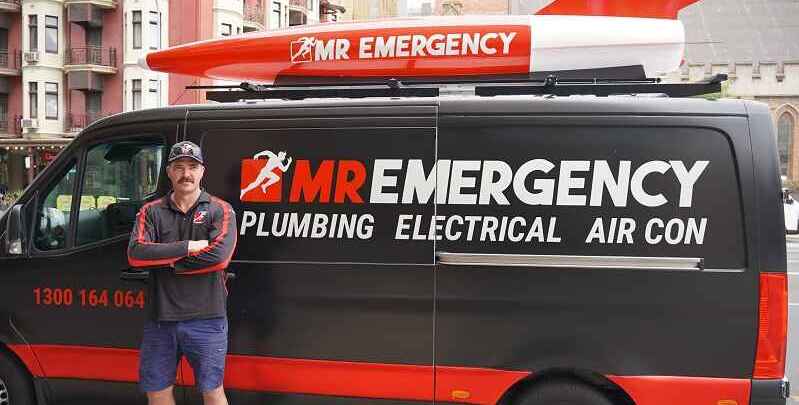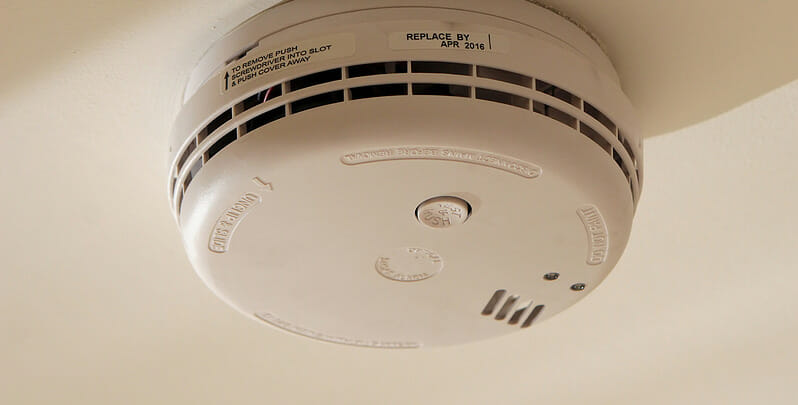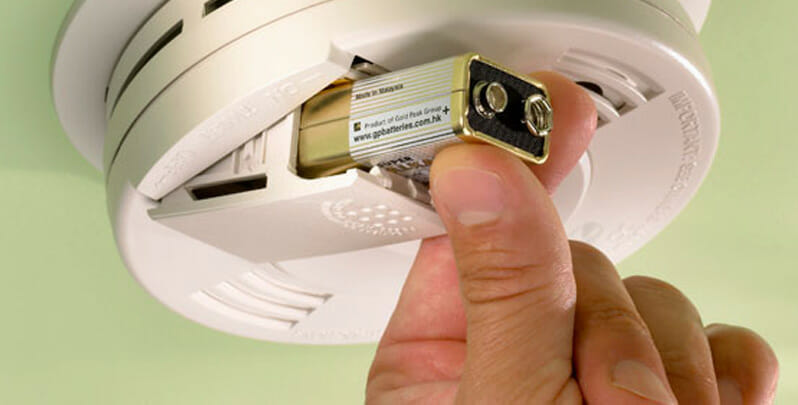
What are Smoke Detectors?
Smoke detectors are the unsung heroes of home safety, providing a critical early warning system in the event of a fire. They are essential for safeguarding your family and property.
When it comes to smoke detectors, there are two primary types of alarms: hardwired and battery-powered. In this guide, we’ll dive deep into the pros and cons of each, helping you make an informed decision about which one is better suited for your home.
How Do Hard-Wired Smoke Detectors Work?
Smoke detectors are the unsung heroes of home safety, providing a critical early warning system in the event of a fire. They are essential for safeguarding your family and property.
When it comes to smoke detectors, there are two primary types of alarms: hard-wired and battery-powered alarms. In this guide, we’ll dive deep into the pros and cons of each, helping you make an informed decision about which one is better suited for your home.
Smoke Detection Technology:
Hard-wired smoke detectors typically use one of two main types of smoke detection technology:
a. Ionisation Technology:
Ionisation smoke detectors contain a small amount of radioactive material, usually americium-241, which ionises the air inside the ionisation detector’s chamber. When smoke enters the ionisation detectors’ chamber, it disrupts the ionisation process, causing a drop in electrical current. This change in current triggers the alarm.
b. Photoelectric Technology:
A photoelectric smoke alarm uses a light source and a light-sensitive sensor to place smoke alarms. When smoke particles enter the detector, they scatter the light. The sensor detects this scattered light and triggers the alarm.
Power Source:
Hardwired photoelectric smoke detectors directly connect to your home’s electrical system’s leading power, unlike battery-powered detectors. They receive their primary power from your home’s AC power. This constant power source ensures the sensors are always operational.
Battery Backup:
Hardwired photoelectric smoke detectors often come equipped with a battery backup to maintain functionality during power outages or in case of electrical malfunctions. The backup power source ensures the sensor continues to operate when it disrupts electrical power.
Interconnection:
Often, interconnected hardwired detectors wire together in a series. A technician will physically interconnect the detectors for maximum effect.
When one sensor detects smoke and triggers an alarm, it sends a signal to all the interlinked detectors in your home. This feature ensures that all occupants are alerted, no matter where they are in the house.
Monitoring Systems:
Sometimes, home security or monitoring systems can integrate hardwired smoke detectors. This integration allows for remote monitoring and alerts, often notifying homeowners or a monitoring service in the event of an alarm.
In summary, hardwired smoke detectors use detection technology (ionisation or photoelectric) to sense the presence of smoke or particles in the air.
The home’s electrical system directly connects them with a battery backup for power outages. When smoke is detected, they sound a loud alarm and can be interconnected to simultaneously alert all occupants in your home.
Regular testing, maintenance, and professional installation are essential to ensure their effectiveness in providing early warning during a fire.
Pros and Cons of Hard-Wired Smoke Detectors
What are the advantages and disadvantages of smoke detectors? Let’s take a look:
Pros
- Reliability: Hardwired smoke detectors are renowned for their reliability. They are directly connected to your home’s electrical system, ensuring a constant power source. It means they are less likely to fail due to dead batteries, providing continuous fire protection throughout.
- Integration with home security systems: One significant advantage is their ability to integrate seamlessly with your home security system. In a fire, they can trigger alarms, alerting you and your security monitoring service and providing an extra layer of safety.
- Longer lifespan: Hard-wired smoke detectors typically have a longer lifespan than their battery-powered counterparts. Some can last up to a decade before replacement, reducing long-term maintenance costs.
Cons
- Installation complexity: Installing hardwired home smoke alarms and detectors can be more complex. It often requires professional electrician services to ensure correct electrical wiring and placement. Installing cabling can add to the initial installation cost and tech support may be necessary. Depending on the location of detectors, ceiling space may be needed for cabling.
- Dependency on electrical power: Since hard-wired detectors rely on power outages in your home’s electrical system, they will only work during power outages if they have battery backup. It is essential in areas prone to power outages or disruptions.
- Potential for false alarms: The interconnected nature of hard-wired systems can lead to false alarms if one detector malfunctions. It can be frustrating and may lead to complacency if not addressed promptly.
Hard-wired photoelectric smoke alarms are highly recommended by experts. But what about a style of smoke alarm that doesn’t require mains power or back-up power?
Recommended brands include Quell, Google Nest Protect, Clipsal, First Alert, Fire Pro and Red smoke alarms.

How Do Battery-Powered Smoke Detectors Work?
Battery-powered compliant smoke alarms and house fire detectors work on a relatively simple but highly effective principle to detect the presence of smoke or house fire in your home. Here’s a step-by-step explanation of how they work:
Power Source:
As the name suggests, these various mains-powered smoke alarms, alarm detector batteries and smoke alarms must be battery power detectors. The most common type of battery powered by these smoke alarm detectors, alarm detectors and alarms is a 9-volt alkaline battery. However, some models use a 10-year lithium battery, which clearly have a longer lifespan.
Smoke Detection:
Inside the smoke detector, there is a chamber or sensor that can detect the presence of smoke particles in the air. This sensor is typically an ionisation chamber or a photoelectric sensor.
Ionization Chamber:
In ionisation-based detectors, a small amount of radioactive material (usually americium-241) generates a constant flow of ions inside the chamber. When smoke enters the room, it disrupts this ion flow, causing a drop in electrical current. The detector senses this drop and triggers the alarm.
Photoelectric Sensor:
Photoelectric detectors use a light beam and a light-sensitive sensor. When smoke enters the chamber, it scatters the light, causing it to hit the sensor. This interruption in the light beam triggers the smoke alarm.
Alarm Activation:
When the sensor detects smoke, it sends a signal to the smoke detector’s built-in alarm. This signal activates the alarm, typically as a loud, piercing sound. A working smoke alarm alerts occupants of a potential fire or smoke hazard.
Notification:
Some models also have a “hush” feature that allows you to temporarily silence the smoke alarm in case of a heat alarm or a non-emergency situation like burnt toast.
Alerting Occupants:
The loud smoke alarm is designed to wake sleeping occupants, and it must alert those in the building code, the building regulations, and the building code in the vicinity to the presence of smoke or fire.
This early warning can provide crucial extra time to evacuate the premises or take action to control the fire.
Low Battery Warning:
Battery-powered smoke alarm detectors often have a low battery warning feature. When the battery-powered smoke alarm batteries’ central smoke alarm’s voltage drops below a certain threshold, the battery-powered smoke alarm detector batteries will emit a periodic chirping or beeping sound to alert you that it’s time to replace the battery.
Regular Testing:
It’s essential to regularly test your battery-powered smoke detectors to ensure they are functioning correctly. Most sensors have a test button that, when pressed, triggers a test of the alarm sound to confirm its operation.
In summary, battery-powered smoke detectors use a sensor to detect smoke or other combustion byproducts in the air. When smoke is detected, they activate a loud alarm powered by batteries to alert occupants to a potential fire.
Regular maintenance, including battery replacement and testing, ensures these detectors safeguard your home against fire hazards.
Pros and Cons of Battery-Powered Smoke Detectors
Here are the advantages and disadvantages of battery-powered smoke detectors:
Pros
- Easy installation: Battery-powered smoke detectors are easy to install. They come with mounting brackets and can be placed anywhere in your home without wiring. It makes them ideal for DIY enthusiasts.
- Portability: Battery-powered detectors are portable. You can quickly move them to different areas of your home as needed or take them with you if you move, providing flexibility.
- No reliance on electrical power: Unlike hard-wired detectors, battery-powered ones are unaffected by power outages. They operate independently, ensuring continuous fire protection throughout a power outage.
Cons
- Frequent battery changes: The primary drawback of battery-powered detectors is the need for regular battery changes. Failing to do so can lead to a non-functioning detector, risking your safety. It’s crucial to stay diligent with battery replacements.
- Limited lifespan: Battery-powered detectors typically have a shorter battery life lifespan, often needing replacement every 5-10 years. It can add up in terms of long-term costs.
- Potential for dead batteries: If you neglect smoke detectors, nuisance alarms or alarm batteries, most smoke detectors and alarms must always replace their replaceable batteries. If they fail unexpectedly, your smoke alarm or detector becomes useless. This potential for a nuisance alarm or alarms with dead batteries is a significant concern.

Factors to Consider When Choosing
- Home type and size: Consider the size and layout of your home. Larger homes and residential buildings benefit from hard-wired systems, while smaller houses or apartments find battery-powered detectors sufficient.
- Budget: Hard-wired detectors generally have a higher upfront cost due to installation. Battery-powered sensors are more budget-friendly initially but may incur higher long-term maintenance costs.
- Maintenance preferences: Reflect on your willingness and ability to perform regular maintenance, such as changing batteries or scheduling professional electrical maintenance.
Maintenance Tips for Both Types
To keep your smoke detectors in top shape:
- Regular testing: Test your detectors monthly by pressing the test button. Replace the batteries or the sensor if you don’t hear a loud, continuous alarm.
- Battery replacement: Change batteries at least once a year for battery-powered detectors or when the low-battery warning beeps.
- Cleaning and servicing: Dust and debris can affect detector performance. Vacuum the units and surrounding areas periodically to keep them clean.
From an interconnectable photoelectric smoke alarm to ionisation-based smoke alarms, the main thing is choosing the right type of smoke alarm that is fully compliant to regulations.
In Conclusion
There’s no one-size-fits-all answer in the battle of hard-wired standard smoke alarms vs battery-powered smoke alarms and detectors.
Your choice of standard or powered smoke alarms should align with your home’s layout, budget, and maintenance preferences.
Both types of battery-powered and powered smoke alarms can offer critical protection, so it’s essential to prioritise safety above all else.
Whether you choose hard-wired or battery-powered smoke detectors, what matters most is having functional, well-maintained and visible battery-powered smoke alarms and detectors in your home.
Regular testing, maintenance, and diligence in place for smoke detector batteries and alarms are vital to ensuring your family’s safety. The smoke alarm guarantee is that it will save your life, but you also have to be diligent.
Choose your battery-powered alarms and smoke alarms wisely, stay safe, and be prepared for any situation that might arise.
If you need a licensed electrician to install your smoke alarm, contact the experts at Mr Emergency today.
Please note: This information is provided for advice purposes only. Regulations differ from state to state, so please consult your local authorities or an industry professional before proceeding with any work. See our Terms & Conditions here.


